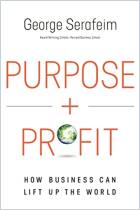Únase a getAbstract para acceder al resumen.

Únase a getAbstract para acceder al resumen.
Matthew Sekol
ESG Mindset
Business Resilience and Sustainable Growth
Kogan Page, 2024
¿De qué se trata?
Mainstreaming ESG practices in business fosters long-term transformation.
Recommendation
Leaders in publicly traded industries may face pressure to align with Environmental, Social, and Governance (ESG) practices for long-term sustainability. Those pressures can challenge their corporate culture. ESG, which emerged as a financial tool in the 2000s, offers opportunities for transformation and growth. However, as author Matthew Sekol reports, deployment can raise issues. Different types of businesses define ESG to fit their brands or strategies, so regulating across industries can prove difficult. The “intangibles” underpinning these initiatives may tempt leaders to cut it to its “simplest form,” but they should not risk diluting ESG’s relevance. Sekol’s message: If you’re going to do it, make it businesslike, make it real, and make it matter.
Summary
About the Author
Matthew Sekol is an ESG and sustainability advocate at Microsoft.




















Comment on this summary